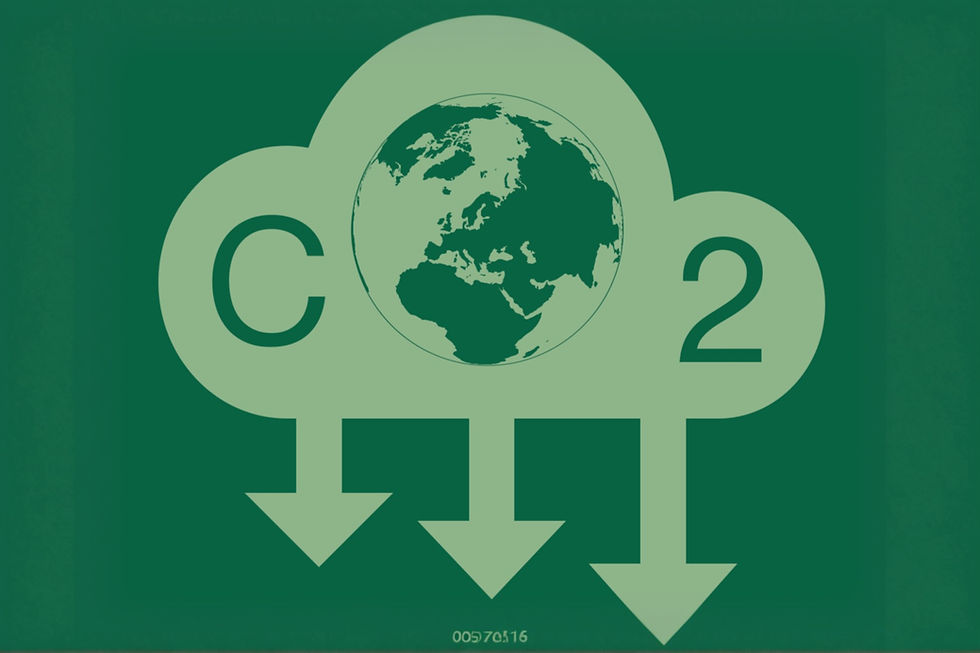COP27: Real progress or performative action?
- Nov 22, 2022
- 4 min read
Updated: Dec 14, 2022

Widely lauded as the most significant opportunity for global collaboration to tackle the climate crisis, the COP Climate Summit is an annual series of meetings that reviews progress towards the overarching goal of limiting the impacts of climate change. Yet, despite 27 COP summits having now been held, the wealthiest nations continue to emit unsustainable levels of fossil fuels and far exceed their share of ecological resources. This begs the question: what is COP really achieving?
COP has a long history of overpromising and under-delivering. The 21st COP saw the signing of the historic Paris Agreement, which set out a primary target to “limit global warming to well below 2, preferable to 1.5 degrees Celsius, compared to pre-industrial levels”. Yet, despite the agreement being signed by all but four governments, the current course of action is wildly off target. The big emitters appear prepared to discuss tackling the climate crisis, but remain unwilling to put action behind their words.
COP enables a selective global narrative on climate change, as the voices of the biggest emitters are amplified over those who are the most heavily impacted by environmental destruction. COP27 is being sponsored by Coca-Cola, a brand which is fundamentally reliant upon fossil fuels to create their products. In 2019, the company admitted to using 3 million tonnes of plastic packaging in a year, and since then it has only increased its usage of ‘virgin’ plastic by 3.5%. Rather than funnelling its funding into researching renewable alternatives, it is spending vast amounts of money to associate the company name with climate endeavours, giving the illusion of support without any of the work to change Coca-Cola’s devastating environmental impact.
Coca-Cola has a “long history of lobbying to delay and derail regulations that would prevent pollution, keeping us addicted to disposable plastic”, as identified by previous COP delegate Georgia Elliott-Smith, who openly criticised the sponsorship deal. The greenwashing and performative activism exhibited by Coca-Cola sets an example that reassures the biggest polluters that they can continue down their path of destruction of the planet for capital gain. In this light, it becomes unequivocally apparent that COP is not just enabling, but actively promoting greenwashing.
The summit’s Coca-Cola sponsorship is unfortunately just the beginning of COP’s platforming and enabling major emitters. An investigation by Global Witness uncovered that at least 636 fossil lobbyists have been granted access to COP27, before even considering the number in closely related fields. This is an increase of more than 100 from COP26. By giving platform to these vast numbers of representatives who are heavily invested in delaying and reducing climate action, COP27 is drowning out those voicing the reality of our planet’s precarious position.
Globally recognised climate activist Greta Thunberg refused to attend this year’s summit, after calling it an opportunity for “people in power… to [use] greenwashing, lying and cheating.” Thunberg is also among the many activists who have highlighted the irony of holding the summit in Egypt, a country notorious for violating human rights. Indeed, many prominent environmental and human rights researchers and activists have been unable to attend because they have been barred from Egypt due to their work. In a nation which is silencing challengers of its government, it cannot be surprising that the scientists and those being the most affected by the climate crisis are not being given a voice when their message does not align with the interests of those in power.
The countries that are the biggest emitters are dominating discussion at COP27, but this trend is not new. Behind the show of flashy smiles put on by a sea of overwhelmingly white, male leaders, lies the reality of the exclusion of activists from nations that face some of the most severe ramifications of the climate crisis. The people who suffer the consequences of Western greed are poorly represented at COP, as their experiences would force world leaders to take accountability that they have demonstrated they are unwilling to take. Jennifer Olachi Unchendu, one of many Nigerian people struggling to access COP, told The Guardian: “voices like mine who advocate for climate justice, loss and damage finance may be seen as threats”.
Many African activists like Unchendu, who are from some of the countries which have been the most devastated by the climate crisis reported struggling to gain access to COP, despite the continent being vastly disproportionately impacted, with hundreds of deaths due to floods and landslides, and approximately 37 million people facing starvation as a consequence of droughts. COP27 was dubbed ‘the African COP’, yet just a month before it commenced, just over 20% of grassroots activists received approval, whilst others reported being told there were no spaces left. Only a small minority of this percentage anticipate sourcing the funding to travel to Egypt. This apparent lack of space is in spite of the more than 600 attendance approvals made for fossil fuel lobbyists.
COP27 is being held in a country which represses its citizens rights to freedom of expression and association, being sponsored by a company described as the “world’s top polluter”, and platforming the some of the biggest emitting nations and companies in the world. It would be fallacious to assert that this summit will yield significant progress in tackling the climate crisis when it is protecting the interests of those benefiting from the destruction of the planet.



Comments